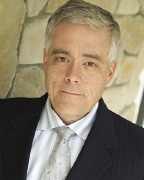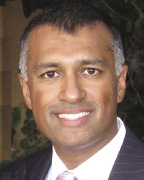Much has been made at recent hospitality industry conferences of the impact, either for good or ill, of technology on the financial performance and operation of hotels. From booking websites that troll for rate reductions in order to cancel and re-book reservations, to Airbnb, to hotel employee unions agitating for distribution of "panic buttons" to all housekeeping staff, the challenges to the industry's finances posed by technology are many and varied. While the industry has been slow to respond to (or even to recognize) these challenges, and slower still to leverage technology to its advantage, change is in the wind.
The utilization of technology and digitization is a fierce global force that is increasing in power as consumers, companies, and countries become ever more connected. Across industries, technology has acted as a profit and efficiency multiplier; the pace and speed of its implementation and innovation, however, has not. An important industry index created by strategy&, formerly Booz & Company, ranks industries by their adoption of technology and how each captures value as digitization grows in importance. At the top of the list sit financial services, insurance, media and telecommunications. At the bottom, lay our "old-economy" hospitality and real estate industries.
The placement on the index can be attributed, according to strategy&, to several key facts. First, our industry is very labor intensive. Travel industry upstart Uber, which is based in more than 60 cities, is valued at near $50 billion in its most recent financing round, but employed only 550 people globally at the end of 2014. By contrast, according to a recent American Hotel & Lodging Association survey, the average American hotel employs 986 people. Second, the services a hotel provides require a high level of "personal touch" interaction, which must be provided by a person. It is not yet possible to replace Maureen in housekeeping with a robot, and even if we could, we might not wish to do so. Lastly, the digital and technical proficiency of the hotel labor pool is generally low. It is truly hard to push sophisticated digitization when many hotel team members have little facility with computers.
Despite the tardiness of the hotel industry to join the technology race, there are signs that the industry is indeed moving to embrace the digital era. With over 6,000 attendees, last month's HITEC hotel technology conference in Austin, the world's largest event of its kind, showcased the industry's leading digital solutions. Years after appearing in the consumer space, the "cloud" and "big data" were the overriding buzzwords of the conference. The shift from enterprise level technology, in which physical equipment and hardware is maintained at each hotel, to cloud based solutions, where properties bypass the need to maintain local servers and simply connect to the internet, has started in hotels. Along with that shift has emerged the concept of "big data" which involves sophisticated data manipulation and application aimed at increasing business intelligence for hotel operators.
It has been clear for some time that the unstructured information that is generated constantly on social media platforms will eventually force the hospitality industry to build proficiency in that data to drive marketing, services, and ultimately revenue. When Conrad Hilton was expanding the original Hilton company in the 1960s, it was the consumer that responded to and accepted the programming choices of the industry. In today's democratized information environment, it is the hotel that must be responsive to the needs, preferences and values of its guests, often expressed in 140 character bursts on platforms like Twitter.
The emergence of the "cloud" and digitization into the hotel industry has had and will continue to have far reaching consequences for hotel properties and brands. The emergence of lifestyle small hotel brands like Troca Hotels has been facilitated by the shift from the enterprise to the cloud. The cost of sharing data between a hotel operating in Brunswick, Maine and another one near Boston, once material and prohibitive, no longer merits mention on a financial statement. That is because real-time data sharing, once the province of large companies with massive data centers and expensive dedicated communications lines, now actively exists - for free - between desktops, laptops, tablets and even handheld smart phones.
Front and center at the HITEC conference was proof that another exclusive province of the large hotel management companies and brands, sophisticated revenue management, has been encroached upon by the "cloud." Once home only to organizations that could afford a mathematics Ph.D. on staff to devise and maintain the systems required to optimize room rate and revenue, companies like HITEC exhibitor Duetto Research, have introduced cloud based tools that allow all hotels, large and small, to set rates using sophisticated algorithms that account for historical room data, flight arrivals, and even social media activity.
The upshot of embracing technology is the increasing ability of smaller hotel players - apart from the big brands, flags and management companies - to compete for guest dollars. The Daniel, which is the Troca Hotels property in Brunswick, Maine, introduced to NEREJ readers in October 2013 and once affiliated with a major flag, is now the rate leader in a market with a competitive set that includes properties from Hilton, Marriott and IHG. The Daniel was recently named to the list of Maine Top 10 hotels by U.S. News and World Report magazine.
The next frontier in the hotel industry's emergence as a participant on the technology field will be the intelligent, thoughtful and innovative utilization of the voluminous data regarding guest behavior and preferences. How each company decides to allocate resources in the quest to harness and exploit the power of technology will determine the pecking order in tomorrow's global hospitality landscape. Last month's NYU conference saw CEOs from Bill Marriott of Marriott International to Accor Hotels' CEO Sébastien Bazin highlight the industry's newfound fascination with technology.
It now seems clear that the most successful and profitable companies within the hospitality sector will be the ones that not only respond to technology, but those that actively shape and utilize it to their advantage. Like many "old economy" industries before it, the hospitality industry will have changed forever.
Ken MacKenzie is partner of Dalton & Finegold, LLP and a member of the International Hospitality Consultants (ISHC). Formerly MacKenzie was the co-leader of the Hospitality and Recreation Group at Goulston & Storrs. MacKenzie represents institutional investors, private equity funds, investment managers, pension funds, university endowments, REITs, major lending institutions and developers in the acquisition, financing and disposition of all classes of real estate assets both nationally and internationally. MacKenzie specializes in transactions involving hospitality assets and has significant experience in large-scale joint-ventured deals, often involving non-profit institutions such as universities or hospitals. He frequently assists clients in structuring their responses to RFPs for complex mixed-use projects.
MacKenzie received his A.B. from Dartmouth College and his J.D. from Boston University School of Law, where he graduated magna cum laude. MacKenzie is admitted to practice law in the state of Massachusetts.
Co-Author: Abhijit "Beej" Das is the president and CEO of Boston East India Hotels LLC which owns the Troca Hotels collection. Prior to founding the company, he was a senior member of the Hilton Worldwide development team where he was responsible for the development of its entire portfolio of brands on the Indian subcontinent. Das has a B.A. in political science from Middlebury College in Vermont and a J.D. from the University of Michigan Law School in Ann Arbor. Immediately after law school, he served as a law clerk for the Hon. Benson E. Legg, Chief Judge of the U.S. District of Maryland.
Tags:
Out of the fog and into the cloud: Better late than never for hotels to embrace inevitable
July 16, 2015 - Front Section










